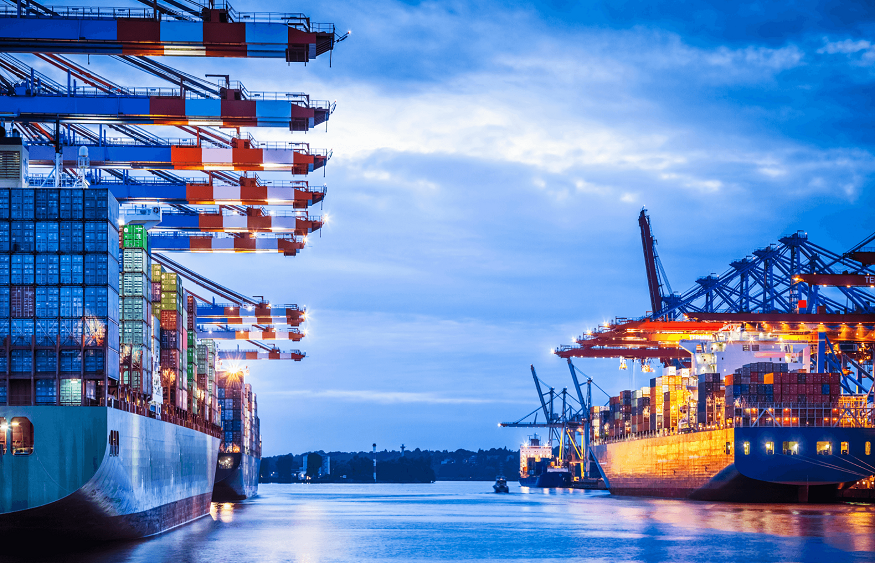Sea freight remains one of the most reliable and cost-effective methods for transporting bulky cargo across long distances. Whether you’re shipping heavy machinery, oversized equipment, or large quantities of goods, successful sea freight requires careful planning and consideration of various factors. When dealing with bulky cargo, there are several key considerations for a smooth and successful sea freight operation.
1. Choose The Right Container
Selecting the appropriate container is crucial when dealing with bulky cargo. Standard containers may not be suitable for oversized or irregularly shaped items. Consider specialised container types such as:
Flat Rack Containers: These containers have no sides or roofs and are ideal for cargo that cannot fit within the dimensions of a standard container.
Open-Top Containers: These containers have a removable roof, making them suitable for cargo that needs top loading or cannot be easily loaded through the container doors.
High Cube Containers: These containers are taller than standard containers and provide additional vertical space for taller cargo.
Platform Containers: These containers have a flat surface without sides, making them suitable for oversized cargo.
Choosing the right container type ensures that your bulky cargo is securely accommodated during transit.
2. Properly Secure And Stow Cargo
The correct stowage and securing of cargo are critical to prevent damage and maintain the vessel’s stability. Here are some considerations:
Lashing and Securing: Utilise appropriate lashing and securing techniques to prevent cargo movement. This includes using twist locks, steel cables, and securing points within the container or on the vessel’s deck.
Distribution of Weight: Ensure that the cargo’s weight is evenly distributed within the container or on the vessel to maintain stability and prevent tipping.
Blocking and Bracing: Use blocking and bracing materials to prevent cargo from shifting during transit.
Protection from the Elements: If your cargo is sensitive to moisture, consider using moisture-resistant packaging, or request that the cargo be stowed in a dry area of the vessel.
3. Accurate Documentation
Complete and accurate documentation is essential for sea freight. Ensure that all necessary customs documents, bills of lading, packing lists, and permits are in order. For oversized or specialised cargo, work closely with your freight forwarder or shipping agent to prepare the required documentation to avoid delays or fines.
4. Compliance With Regulations
Adherence to international shipping regulations is crucial. Make sure your cargo complies with safety, environmental, and hazardous material regulations. Failure to comply can result in delays, fines, or even the seizure of your cargo.
5. Route Planning And Transit Time
Bulky cargo may require special routing considerations. Consider the most suitable shipping routes that accommodate the size and weight of your cargo. Be mindful of transit times and factor in any additional time needed for handling oversized or irregularly shaped items.
6. Insurance Coverage
Ensure that your cargo is adequately insured. While sea freight is generally a safe mode of transportation, unexpected events such as storms or accidents can occur. Comprehensive insurance coverage provides peace of mind and financial protection in case of unforeseen incidents.
7. Partner With Experienced Freight Forwarders
Working with experienced freight forwarders or shipping agents such as GenX Freight is invaluable when dealing with bulky cargo. They have the expertise to handle the complexities of sea freight and can assist in selecting the right container, arranging transportation, ensuring compliance with regulations, and managing the entire logistics process.
Conclusion
Shipping bulky cargo via sea freight can be a cost-effective and reliable option, provided that you consider the key factors mentioned above. Proper planning, secure stowage, compliance with regulations, and the assistance of experienced professionals all contribute to a successful and smooth sea freight operation for your bulky cargo. Also, hiring sea freight forwarders can save you time and help you get your parcel on time without any delays since they have professional expertise in this field. By addressing these considerations, you can ensure that your valuable cargo reaches its destination safely and on time.













+ There are no comments
Add yours